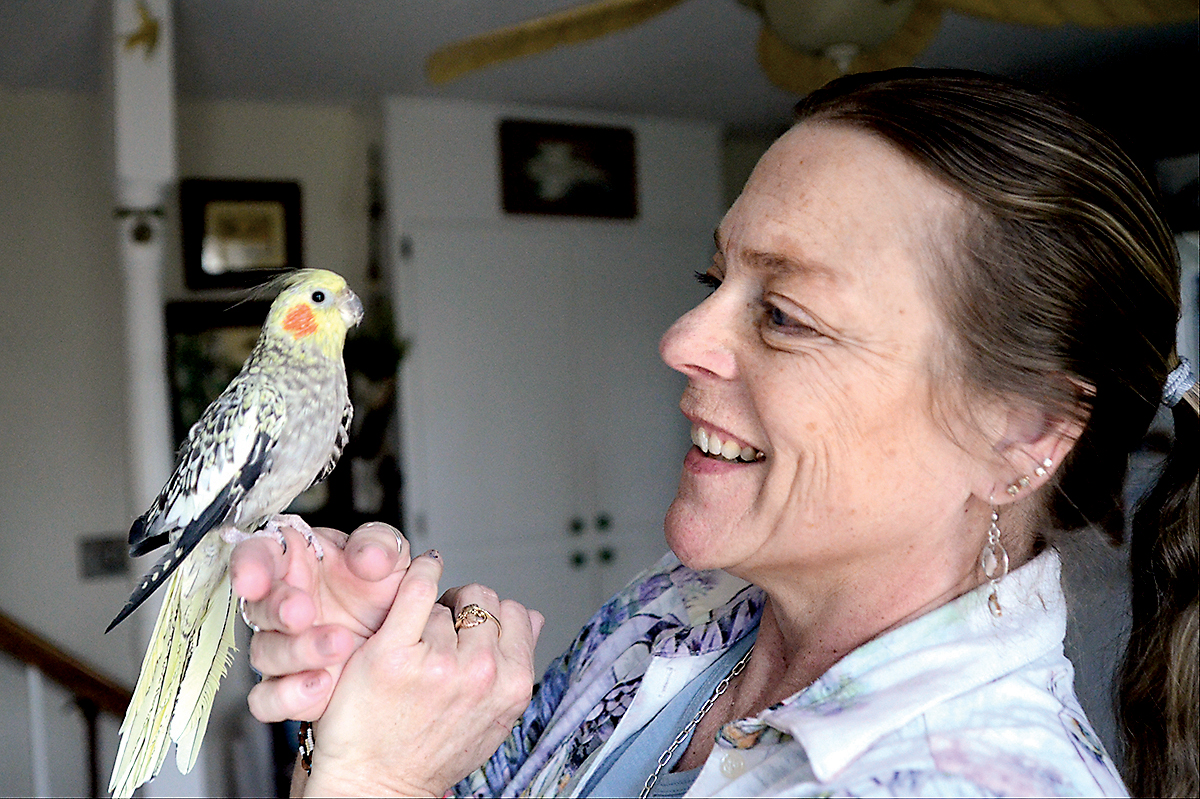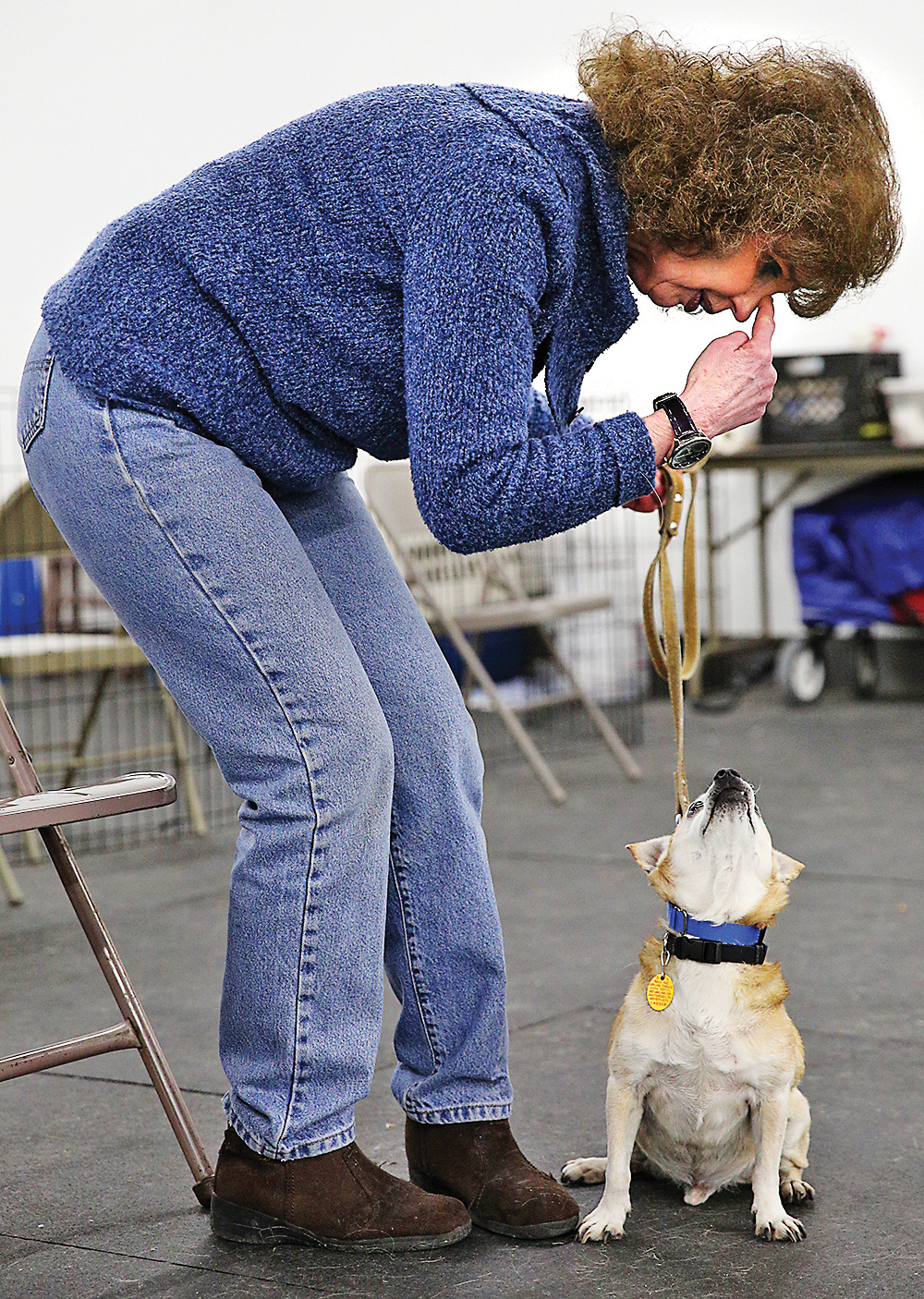PROVIDING FOR YOUR PETSThe Humane Society of the United States recommends observing a few precautions to ensure your pets' needs are provided for in the event that they outlive you:• Find at least two friends or relatives to serve as "temporary emergency caregivers" and provide them with keys to your home, instructions for feeding and any medical needs for the animals, the name of your veterinarian and any other care requirements.• Keep in touch with your caregivers to ensure they are still willing and able to take in your pets.• Alert your friends, relatives and neighbors to how many pets you have and the contact information for your designated emergency caregivers. Make sure your emergency caregivers can contact each other.• Carry an "alert card" in your wallet with contact information for your pets' caregivers.• Post removable "in case of emergency" notices to your doors or windows, listing the number and types of pets you have so emergency responders can account for them. Don't use stickers since these can be left behind by previous tenants and responders may risk their lives looking for pets that no longer live there or they may assume the information is out of date.• Informal arrangements are not sufficient. Work with an attorney to draw up a special will, trust or other document to specifically provide for your pets' long-term care.GENERATIONAL GERIATRICSWhile most people can expect to outlive their pets, there are a few species in the animal kingdom whose lifespans dwarf that of humans.Many species of parrots are incredibly long-lived. In a 2011 study, biologists at New Mexico State University and the International Species Information System cited several examples of individuals in their 70s and one, a salmon-crested cockatoo, that was 92 years old.The marine funerals -- with honors -- conducted for countless generations of goldfish in the bathroom may suggest aquatic pets are short-term companions, but some fish can last decades longer than their owners. The Japanese koi, a domesticated breed of carp and cousin of the goldfish, can last for generations. One exceedingly ancient scarlet koi named Hanako in Japan was estimated to have been more than 225 years old when she died in 1977.In the Aldabra Atoll in the West Indian Ocean, there are giant tortoises that regularly live for a century or more, according to the Museum of Zoology at the University of Michigan. When a tortoise named Adwaita -- Bengalese for "the only one" -- died in 2006, he was estimated to be at least 150 years old and potentially more than 250 years old, although the zoo where he lived has yet to release carbon dating to confirm his age.
Sam was 10 years old when he was orphaned.
A squat, tawny-backed, white-bellied mutt with a Chihuahua's face and a corgi's stumpy legs, Sam took the death of his owner pretty hard. None of the man's relatives were able to care for him, so Sam was abruptly relocated from his home to the Pet Placement Center, a no-kill animal shelter on Dayton Boulevard.
When he arrived, he was inconsolable. He wouldn't eat and had trouble sleeping. He was -- without question -- heartbroken, says Linda Boyd, Sam's current owner and a board member at the center.
"He just laid around," recalls Boyd, 67, who adopted Sam about two years ago. "He wasn't up to playing or socializing. He was just so depressed."
Animal care experts say depression is just one side effect pets face during the life-altering experience of outliving their owners. In general, a pet's lifespan is a fraction of its human's. On average, dogs live for eight to 16 years, depending on breed and weight, while cats can expect to last a little longer, about 13 to 17 years, according to estimates by the American Society for the Prevention of Cruelty to Animals.
By comparison, the global life expectancy for humans is about 68 years, according to 2014 estimates listed in the Central Intelligence Agency's World Factbook.
Nevertheless, experts estimate that deaths of owners due to old age, disease or accidents leave many animals, like Sam, in a kind of limbo without an established plan set aside for their long-term care. Every year, more than 500,000 pets survive their owners, according to 2nd Chance 4 Pets, an animal welfare nonprofit established in 2004 to reduce the number of animals euthanized after the death or incapacitation of their caregiver.
KENNEL SHOCK
Many orphaned animals ultimately are dropped off at shelters by friends or relatives of the deceased during the flurry of funeral preparations. Those who deliver the pet may be from out of town and often are unable to provide shelter employees with a medical history or insights into the animal's behavior, says Jamie Lampman, executive director of McKamey Animal Care and Adoption Center.
At least a couple of pets from deceased owners are dropped off every month at McKamey, Lampman says, usually because the owner's informal arrangement with friends or relatives doesn't pan out.
"People don't write [a plan for their animals] into their wills because they assume, 'Oh, Betsy will take them.' Well, Betsy lives in Denver, and she works 12 hours days six days a week; she's not going to take them," Lampman says.
For formerly beloved pets, life in a shelter often is a jarring contrast to the comforts to which they are accustomed, and the shock of transitioning to a kennel can intensify emotional distress, Lampman says. To help blunt that shock, McKamey has a network of volunteer foster care providers to keep animals in a more familiar home environment.
"Unlike the animals who have been starved or abused and get here thinking it's the Taj Mahal, these pets have slept on a bed their entire life and go for car rides to the bank and get biscuits," she says. "When you bring them in here, they're looking around like, 'What did I do? Where's my owner?'"
FEATHERED FOSTER
Signal Mountain resident Alix Parks, 54, is a licensed wildlife rehabilitator specializing in the care of injured wild birds, especially birds of prey, a reputation that has earned her the nickname of "raptor lady." She also serves as the occasional foster mom for parrots, whose decades-long lifespans -- often 70 years or more -- can see them outlive their owners.
Currently, she is caring for Sparkles, a Pearly Pied cockatiel orphaned last year by the death of her owner, who raised her from a chick. The man's wife, Parks says, couldn't bear the emotional strain of being around the bird her husband loved.
Adorned with a pale yellow feathers on her head and tail and orange cheeks that look freshly rouged, Sparkles is 12 years old, only about half her life expectancy in captivity. Parks says she is leveraging her many connections among fellow bird enthusiasts to find a new home for Sparkles, whose screeching echoes in the background over the phone.
After the death of an owner, Parks says, pets often exhibit signs of grief that can be hard to witness, especially for animal lovers. But there's little a new caregiver, temporary or permanent, can do to ease improve their discomfort.
"They just mope around and don't want to eat or search for the lost person," she says. "All you can really do is try to get them with others and keep them stimulated and give them extra attention."
ESTABLISHING TRUST
Although they can't prevent their animals from grieving for them, owners can alleviate some of their pet's anxiety by establishing a legal trust to provide for their care, says John Buhrman, an estate planning attorney with Buhrman Law Firm on Frazier Avenue.
According to the ASPCA, 46 states -- including Tennessee, Georgia and Alabama -- and Washington, D.C., allow owners to make legal provisions for the long-term care of their pets.
Most people don't.
According to a study by the American Pet Products Association, as of 2012, 9 percent of cat and dog owners said their animals were written into their wills, which represents a slight increase over 2010, when 6 percent of cat owners and 5 percent of dog owners reported making provisions for their animals.
Buhrman estimates less than a dozen of his clients have established a pet trust since Tennessee's provision was enacted in 2007. The issue of pet after-life care is part of the questionnaire the firm hands to clients wanting to set up an estate plan, but Buhrman says that, when it comes up, most clients say they already have made informal arrangements.
Those who establish a trust, however, usually have extremely specific conditions.
One of Buhrman's clients has arranged for her pets to be shipped to new owners in Louisiana and Texas, and she has set aside a fund to cover the cost of moving them, feeding them, boarding them and even for their medical care under pre-designated veterinarians in both states.
"When someone is that close to their pet, it's just like their child, and they will make specific provisions in their estate planning trust documents, just like they would for their children," Buhrman says.
END OF LIFE, NOT HOPE
Although they often find themselves on unsure footing after the death of an owner, orphaned pets aren't completely without hope.
About a year after he arrived at the Pet Placement Center, Sam had gotten over his grief and was, Boyd recalls, a "pretty normal little guy," when a family adopted him. About nine months later, however, they brought Sam back to the center, citing concerns over his food aggression around their infant child.
Another year passed, and the Pet Placement Center sent Sam out to do a bit of furry heartstring tugging during a fundraiser. The event ran late into the evening and, by the time it ended, it was too late to justify rousing all the other residents of the kennel to put Sam in his cage, so Boyd decided to let him spend the evening at her home in Red Bank.
He never left.
"That's the end of the story," laughs Boyd, who later co-adopted Sam with her friend and fellow board member Kathy Slaten. "Lucky for him ... and for me."
Despite his lingering issues with being a bit growl-y at the food dish, Sam has adjusted well to life at his second home, which he shares with a "handful of cats" and two other dogs, Missy, a 10-year-old long-haired Chihuahua, and Sport, a 14-year-old dachshund mix with a weight problem.
Now, he sleeps in Boyd's bed and spends most of his waking hours monitoring the goings on around the house or finding the nearest sunny spot on the lawn to lie in.
"A senior pet may only live two or three more years," says McKamey's Lampman, "but boy, they can be great years."
Contact Casey Phillips at cphillips@timesfreepress.com or 423-757-6205. Follow him on Twitter at @PhillipsCTFP.



